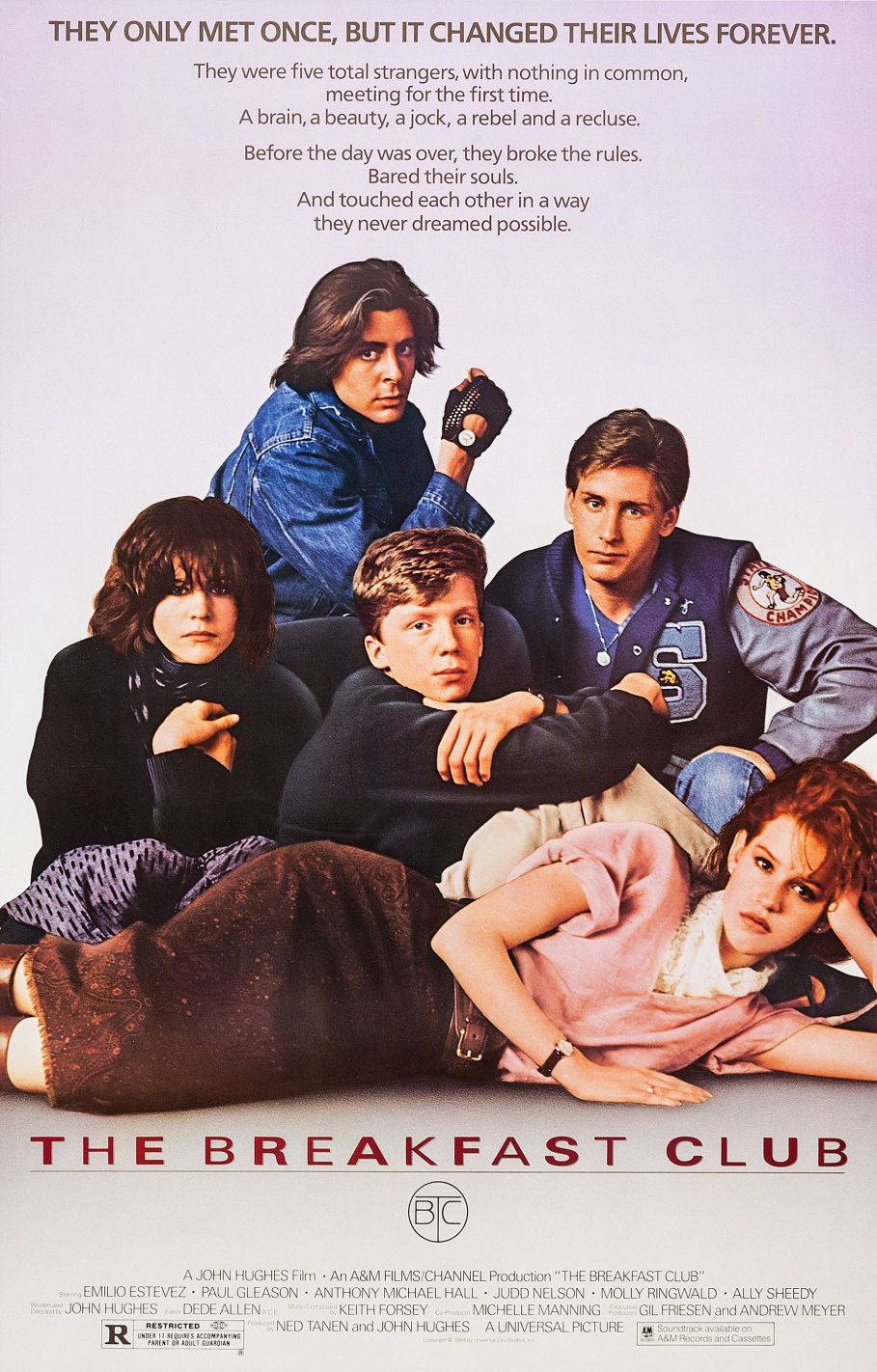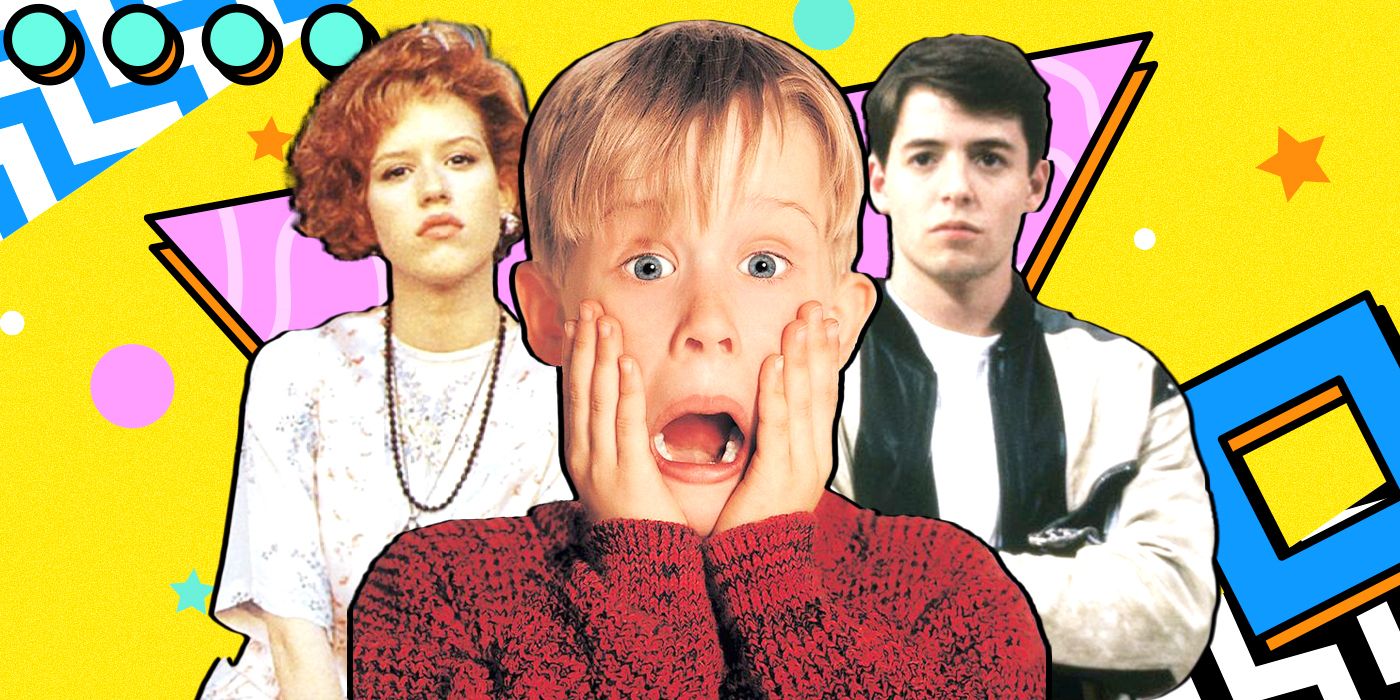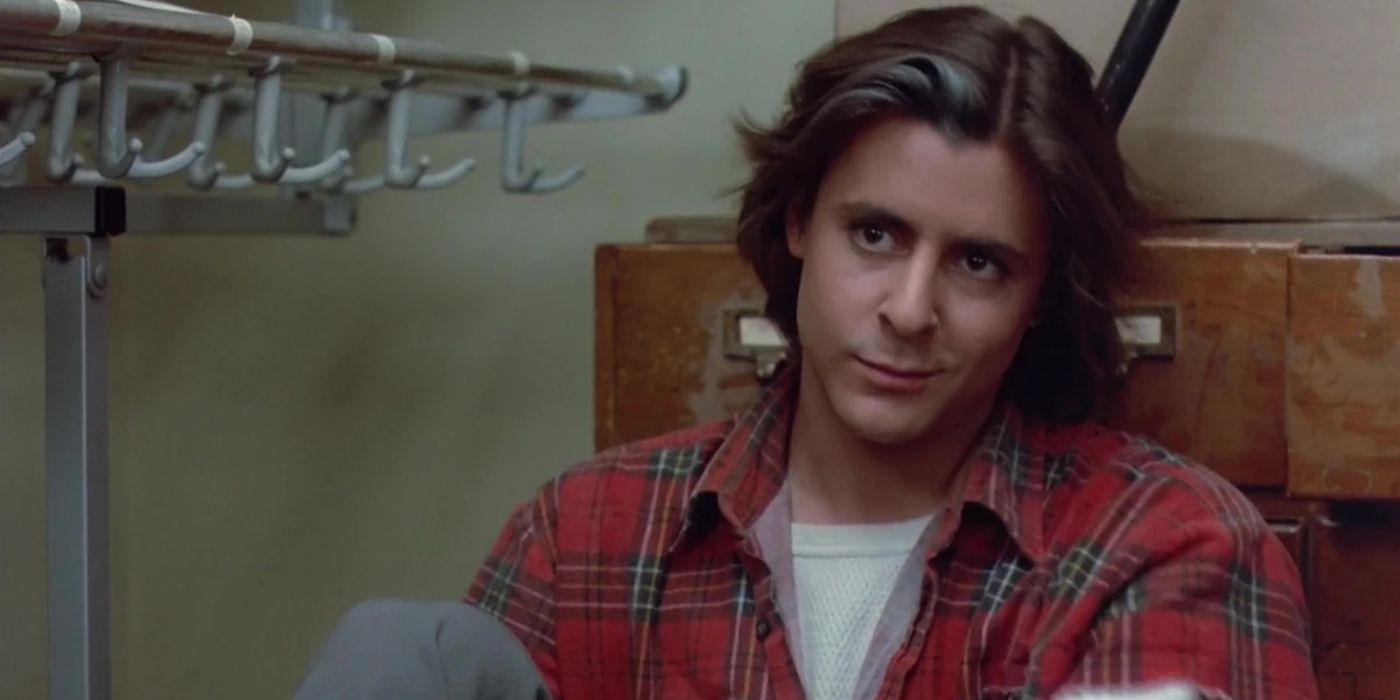[ad_1]
The Big Picture
- The character of John Bender in
The Breakfast Club
is an anti-hero who is snarky and confident, but also influences the other characters to break out of their shells. - Judd Nelson’s method-acting approach to the role led him to stay in character even off-set, which annoyed some cast members, as well as director John Hughes.
- The cast of
The Breakfast Club
banded together to convince Hughes to keep Nelson in the project, mirroring the theme of the movie where the characters bond and support each other despite their differences.
The Breakfast Club relies on the distinctive nature of its five lead characters, and the plot hinges on them being identifiable as the athlete (Emilio Estevez), the brain (Anthony Michael Hall), the princess (Molly Ringwald), the criminal (Judd Nelson) and the basket case (Ally Sheedy). The movie has stood the test of time and is still relatable to this day because the five actors successfully encapsulate these archetypes. Burnout John Bender (Nelson) plays up to his stereotype in the way he takes enjoyment out of the discomfort of others, yet his charisma makes him reluctantly easy to root for. He is insufferable yet irresistibly charming to both his fellow detention attendees and the audience alike.
Judd Nelson achieved this characterization by staying in character even when the cameras weren’t rolling, much to the disapproval of director John Hughes. Hughes, having worked with Molly Ringwald before, was particularly protective of the actress and so objected to Nelson continuing to taunt and tease Ringwald between takes. However, despite his desire to remove Nelson from the project, Nelson’s fellow cast members banded together to ensure he kept the role.

The Breakfast Club
- Release Date
- February 15, 1985
- Director
- John Hughes
- Runtime
- 97 minutes
- Main Genre
- Drama
Judd Nelson Plays the Anti-Hero in ‘The Breakfast Club’
John Bender is a stark contrast to his other four classmates in The Breakfast Club. He is snarky and confident, and they are much more reserved. Bender appears unfazed by the potential consequences of his actions, which we see early on as Principal Vernon (Paul Gleason) threatens him with numerous Saturday detentions without resistance. Almost every sentence Bender utters is derogatory towards someone else, and he appears to take great enjoyment in making those around him feel uncomfortable. He teases Andrew for being on the wrestling team, and Brian for being in the physics club, but, it’s Bender’s treatment of Claire which is particularly vulgar, as he constantly picks apart her frigidity and pure views on relationships.
Yet, Bender is not one-dimensional. Despite his uncouth attitude and belittling of his peers, there is a certain charm to him that reels you in. Both the audience and the other members of The Breakfast Club are compulsively drawn to him, and he is influential in allowing the others to become more comfortable and break out of their shells. In this way, Bender’s blurred morality makes him the anti-hero of the movie. He’s a character whose actions are delinquent but whose heart appears to be in the right place. He ridicules his classmates, but he also takes them under his wing and shows them the ropes of detention. When the group wanders around the school, as soon as the threat of Vernon catching them arises, Bender takes the fall and allows the others to get back to the library undetected. He pushes the boundaries, but at the end of the day, he looks out for the others. Nelson’s performance encapsulated all aspects of Bender’s personality, showing he was more than just a criminal.
John Hughes Wanted Judd Nelson Fired From ‘The Breakfast Club’
Judd Nelson couldn’t have been more different from John Bender. So, to ensure he was fully immersed in the role, Nelson took a method-acting approach to the role. He would dress in Bender’s clothes and annoy his cast members just as the character did in the movie. Molly Ringwald knew what Nelson was doing, and was not particularly bothered by his antics. However, John Hughes was particularly protective of Ringwald, the two having worked together previously on Sixteen Candles. The relationship would extend beyond The Breakfast Club, with Hughes writing Pretty in Pink with the actress in mind.

7 Best John Hughes Movies, From ‘The Breakfast Club’ to ‘Ferris Bueller’s Day Off’
The writer/director helped a generation grow up with synthy music, Molly Ringwald, and talent for finding truth in character.
Ringwald was only 17 during the filming of The Breakfast Club, compared to Nelson, who was 25. This led Hughes to become particularly irate at Nelson’s behavior towards Ringwald, with the actress never having seen the director so angry. Hughes was so angry that he wanted to remove Nelson from the project. This wasn’t the first time Hughes had taken precautions, and since Ringwald was a minor, her protection was paramount to the director. Due to legal requirements, the scene in which we see Claire’s underwear was a hired adult actress, but Ringwald’s mother was vocal in her disapproval of the scene. In fact, a line was changed in Sixteen Candles regarding Ringwald’s on-screen father inquiring about her underwear due to Ringwald’s mother’s disapproval. Hughes ensured that Ringwald was protected both on and off the screen, and he saw Nelson as a threat to this protection, so he wanted him out of The Breakfast Club.
‘The Breakfast Club’ Cast Convinced Hughes To Keep Nelson in the Role
The Breakfast Club shows five students bonding despite their differences, and that is exactly what happened behind the scenes. Ringwald believed that Nelson understood the role of Bender in a way that nobody else could, and she really wanted him to keep the part. The group rallied together, led by Ally Sheedy, to ensure Nelson stayed focused. In addition, they contacted Hughes and asked him to reconsider his stance. Thankfully, the group managed to convince John Hughes to keep Judd Nelson on the project. In this way, the behind-the-scenes events and the narrative blended fact and fiction as the five strangers who, on the surface, don’t have anything in common, learn through time that there are crossovers in their lives. All of them struggle with pressure, whether it’s from parental expectations or those of their peers, and opening up allows them to gain more of an understanding of each other.

Before Her Iconic John Hughes Movie Roles, Molly Ringwald Did This Bonkers Space Western
Molly Ringwald charms as a plucky heroine in this 1983 space adventure set in a dark, apocalyptic land.
The beauty of The Breakfast Club is the five walk in as strangers and walk out, not as friends, but with a gained sense of empathy. Knowing the group banded together when the cameras weren’t rolling to save one of their own proves the message even more. Bender was the anti-hero of the movie. He pushed boundaries, but it was this push that helped the others break out of their shells. This was paralleled by Nelson’s off-screen persona, staying in character and annoying his co-stars. This behavior, though disapproved of by Hughes, encouraged the young co-stars to band together to make sure the group stayed united. Nelson was a menace on and off the screen, but his charisma ensured Bender was an essential member of The Breakfast Club.
[ad_2]
.










